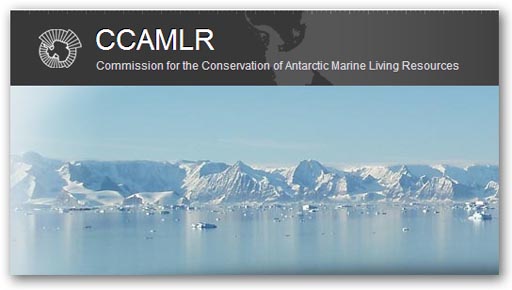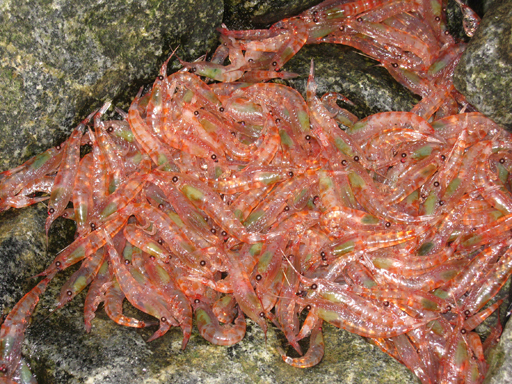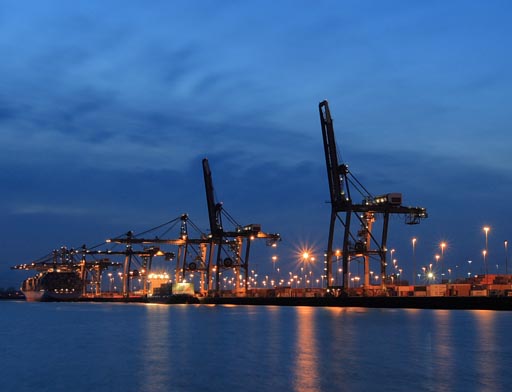EU politics: Britain would vote to stay in the EU
Thursday 3 January 2013
Mr Cameron, Rachman reminds us, has been promising a big speech on "Europe" for months (another one of this brilliant media commentators who can't tell the difference between the continent and the European Union). And Cameron's strategy for keeping the UK inside the EU, we are told by this great sage, is fairly clear. This "clear" strategy, it would thus appear, is that he is "likely" to demand a renegotiation of Britain's terms of membership, involving the repatriation of some powers from Brussels. He will promise to put the result to a referendum, in which voters will be invited to accept the new deal or quit the EU. Wearily, we learn that "the other EU members will not make a British renegotiation easy. But they will probably throw a few token concessions in Mr Cameron's direction, rather than force Britain out of the union". In any referendum campaign, the leaders of all three leading parties – the Tories, Labour and the Lib Dems – would campaign in favour of a "yes" vote. Ranged against them would be UKIP, "a party that Mr Cameron uncharitably – but not entirely inaccurately – in 2006 described as made up of fruitcakes, loonies and closet racists". The "no" campaign would also be bolstered by some of the angrier and less attractive members of the Conservative party. Faced by this line-up, the British public would almost certainly opt for the status quo – staying inside the EU. This process, Rachman acknowledges, "would strongly resemble the last British referendum on the EU in 1975", when Harold Wilson had also insisted on "renegotiating" Britain's terms of membership and putting the results to a referendum. Although the British public has become less deferential over the past 40 years, the EU has been transformed in size and purpose, and a lot has changed since the 1975 referendum, the end result, Rachman believes, is likely to be the same. And how brilliantly the man has missed the point. While he may well be accurate in his prediction for such a referendum, if it ever happens, the offer of a faux renegotiation will not get Mr Cameron successfully past the general election. And that will what he will be trying to do with his big speech on "Europe". That is its real purpose. Here, Cameron will not only be confronting a less deferential public. There is also the internet. Opinion is less dependent on the established media and there are more and better means of disseminating the truth. Thus, a promise to renegotiate will be seen by enough people for what it is, and they will rob him of his chance of re-election. For Mr Cameron to get past his 2015 hurdle, therefore, he is going to have to offer something much more imaginative. And there he is running out of options – and time. COMMENT THREAD Richard North 03/01/2013 |
EU politics: the way the world works
Thursday 3 January 2013
The treaty itself is known as the Convention on the Conservation of Antarctic Marine Living Resources (CCAMLR) which, according to this site came into force in 1982, as part of the Antarctic Treaty System. The aim of the Convention, we are told, is to conserve marine life. This does not exclude harvesting as long as such harvesting is carried out in a rational manner, but it has spawned a huge raft of regulations to which signatory countries (Contracting Parties) are required to enact. The interesting thing here is that, while the UK is a signatory, we have made no regulations to implement the convention, even though we fully comply with it. The reason for this is because the EU is also a signatory. Rather than producing our own national regulations, therefore, we have relied on the EU making them, which we then implement. A typical example of this process is Council Regulation (EC) No 1721/1999 of of 29 July 1999, laying down certain control measures in respect of vessels flying the flag of Non-Contracting Parties to the Convention on the Conservation of Antarctic Marine Living Resources. This regulation came into effect after the 16th Annual Meeting of CCAMLR in 1997, when the signatories adopted a conservation measure on a "Scheme to Promote Compliance by Non-Contracting Party Vessels with CCAMLR Conservation Measures". The objective was to ensure that the effectiveness of conservation and enforcement measures established by CCAMLR is not undermined by Non- Contracting Party vessels. It required of the signatories to impose an inspection regime on vessels flying the flag of non-contracting parties, which had been sighted engaging in fishing activities in the Convention area. Such vessels seeking to land or transship produce in an EU member state could only do so in a designated port, whence an inspection would be carried out to ascertain whether the produce had been caught in accordance with the Convention. If the master cannot prove this, then entry has to be denied. Largely, this and many other similar regulations are entirely unobjectionable. The EU does not originate the regulations – it merely transcribes the wishes of the CCAMLR signatories, and turns them into actionable law. Interestingly, Norway is a signatory, which takes an active part in the proceedings and thus, effectively, has a hand in dictating what eventually becomes EU law. Now, should the UK leave the European Union, without an agreement which covers the CCAMLR, the EU regulations would no longer apply to the UK, and there would thus be no mechanism for enforcing the Convention in the territories of the UK, or in respect of UK-registered ships. Since that would mean that the UK was then in breach of the Convention, the British government would then be faced with the prospect of drafting and enacting a mass of regulations top replace the defunct EU legislation or, more likely, it would chose to re-enact the EU law. However, it is not that simple. The UK would also have to redefine its designated ports – those which are permitted to carry out inspections - which must then conform with EU requirements, if the produce was then to be allowed into the EU, either directly or as ingredients of processed foods. This may be a minor problem in the grander scheme of things but it is not insignificant. Much of the krill fished is used as fish-farm feed and to produce Omega 3 oil and other health supplements. And according to the loss-making Guardian, harvesting is an expanding industry. Although the UK does not have a major interest in the krill fishery, unregulated imports could have a significant effects of the Scottish farmed salmon industry, where krill is regarded as an important and growing feed source. If the UK no longer had the EU regulations in place, the EU could quite legitimately ban the imports of all Scottish salmon unless the suppliers could prove that the krill in any krill-based feed had been fished in accordance with the CCAMLR regime. Other countries, such as the United States, might also apply a prohibition, on the basis on non-conformity with EU rules. Furthermore, loss of this trade would be only one possible effect of a unilateral withdrawal from the EU. Crucially, there are thousands of different conventions, agreements, protocols and other arrangements which might be affected by our withdrawal and make it more difficult to export. Individually, they might not be too important, but collectively the effect could be massive, so they all need to be examined and any effect neutralised. Thus, before we leap, we need a good hard look. Withdrawal from the EU is by no means impossible. But it is difficult, and pretending we can walk away without a carefully negotiated settlement already in place is irresponsibility bordering on criminal stupidity. COMMENT THREAD Richard North 03/01/2013 |
EU politics: an escape from reality
Wednesday 2 January 2013
Over the Christmas period, I've started writing a pamphlet on the famous exit plan – a guide to leaving the EU. And, although it's early days yet, I cannot find any other way of starting but to suggest that the UK invokes Article 50.
Looking back at 1961 and the first formal negotiations for entry to the European communities has been helpful, as the Government had then concluded that it could not expect the Six to change the treaties to accommodate the UK. Again in 1969, when formal negotiations were recommenced, the same ethos applied, whence our chief negotiator, Con O'Neill, spoke of us having to "swallow it whole and swallow it now" – the starting point being that we accepted the treaties unchanged, and the whole of the acquis. Yet again in 1975, when Harold Wilson sought a "renegotiation", upon which the entire membership of the UK seemed to depend, the "colleagues" were not prepared to countenance changing the treaties, even if the result of not so doing could have been the withdrawal of the UK.
Forty years into our membership of what is now the European Union, nothing has changed. The whole sweep of history is against the idea that there can be any treaty change at the behest of the UK. It has never happened in the past, and it is not set to happen now.
Furthermore, with the "colleagues" looking to strengthen integration through additions to the treaties, it is inconceivable that they would be prepared to take time out to engage in the detailed negotiations required to satisfy the UK's requirements, more so when a perfectly adequate mechanism is available through Article 50, which could give the UK everything it needs. It remains perplexing, therefore, that the likes of Hannan pathetically tout their renegotiation mantra, currently telling us that: "If we can't do a deal with Europe, leaving it should hold no terrors". The point, of course, is that in order to reach a deal with his "Europe", we have to commit to leave the European Union. This is a point that has to be stated again and again, until it starts to lodge – as indeed it must eventually. But the equally significant point is that, until we have gone through the negotiation process and satisfactorily concluded a new deal with the EU, leaving is not a sensible proposition. Without a deal, it should hold considerable "terrors" and is not something which can be countenanced. Here, I am getting tired of repeating myself, and get more than a little dispirited at having to swim against the tide, fighting not only the ignorance and prejudice of the europhiles, but the stupidity and equally profound ignorance of our own side. However, once again it must be said that, if we were to leave the EU unilaterally, the day after our exit, imports into the EU from the UK would come to a grinding halt. On this, it is all very well saying that EU member states would not bar British imports, because they export to us greater amounts. But this is not a choice EU member states are able to make. As EU members, they must obey EU law. As the law stands, the UK is part of the Single Market. Outwith the EU and the EEA, however, the UK becomes, as far as EU law is concerned, a "third country". And imports from third countries must to subject to a raft of inspections, documentation and physical checks at member state ports (including airports) before they are allowed entry. Furthermore, these checks must be carried out at approved "Border Inspection Posts" (BIPs) at specially designated ports, which - for different purposes - must be approved by Commission Regulation. Should we leave the EU, there would be no such ports designated in the UK, and no BIPs on the Continent authorised (or able) to deal with goods from the UK. It has been said in this context (by people who should know better) that the EU member states could simply ignore the rules, or that the EU itself would very quickly come to an arrangement to allow UK goods to enter - simply to protect its own trade. But that is not the case. The EU and its member states are bound by their own rules, and must go through the procedures before the requisite BIP network could be established. For want of that, any commercial firm, other member state, or even another third country exporter, could take member states or the EU Commission to the ECJ, with potential fines running into the billions. More importantly, for the Commission to ignore the rules would threaten the very fundamentals of the Single Market. And that could not happen. Thus, we would be left with the prospect of reduced trade until we had negotiated a new deal, or we would have to assume a "third country" status.
And such are the complexities of the border inspection system that, with the best will in the world, it would take years for the UK properly to be accommodated, during which time our exports to the EU would be bound to suffer. There is no way around this. Before leaving, we must negotiate a deal which secures us access to the Single Market on favourable terms.
Within the corridors of power, there will be Civil Servants who know this, and their counsel will reach the high and mighty – who will be fully briefed on what they can and cannot do. But when it comes to Hannan, Jenkins, Farage and the like, these people have no knowledge of the real world, and have no capability to find out. Simply, as we observed earlier, they do not do detail. On the other hand, one might have though that they could be told - that they could learn from others. But I have talked to these people and their like. Start on the detail and their eyes glaze over, the shutters come down and their brains disengage. You simply cannot get through to them. They are ignorant because they want to be - they revel in their ignorance. They are proud of it. In their own estimation, these people are too "clever" and far too grand to deal with the nuts and bolts of reality. The detail can be left to the "techies", the "plebs" and the nerds. The grand ones don't have to trouble themselves with petty-fogging detail, or soil their precious brains with such squalid matters. Needless to say, the Continentals do cope quite well with detail, which is why their civil servants and politicians so often run rings round ours. And when it comes to the Single Market, detail really is everything. But, for the moment, it is far more rewarding for the fatuous lightweights in this debate to provide "comment fodder" than actually deal with the reality. Sooner, rather than later though, we are going to have to deal with that reality. It is going to come as a great shock to many and some will not be able to deal with it. Those tend to include the most voluble, but then they always did say that the empty vessels make the most noise. Sadly, if they have their way, we will be seeing a lot of empty vessels on the high seas. COMMENT THREAD Richard North 02/01/2013 |
Thursday, 3 January 2013
Posted by
Britannia Radio
at
12:12
![]()


























